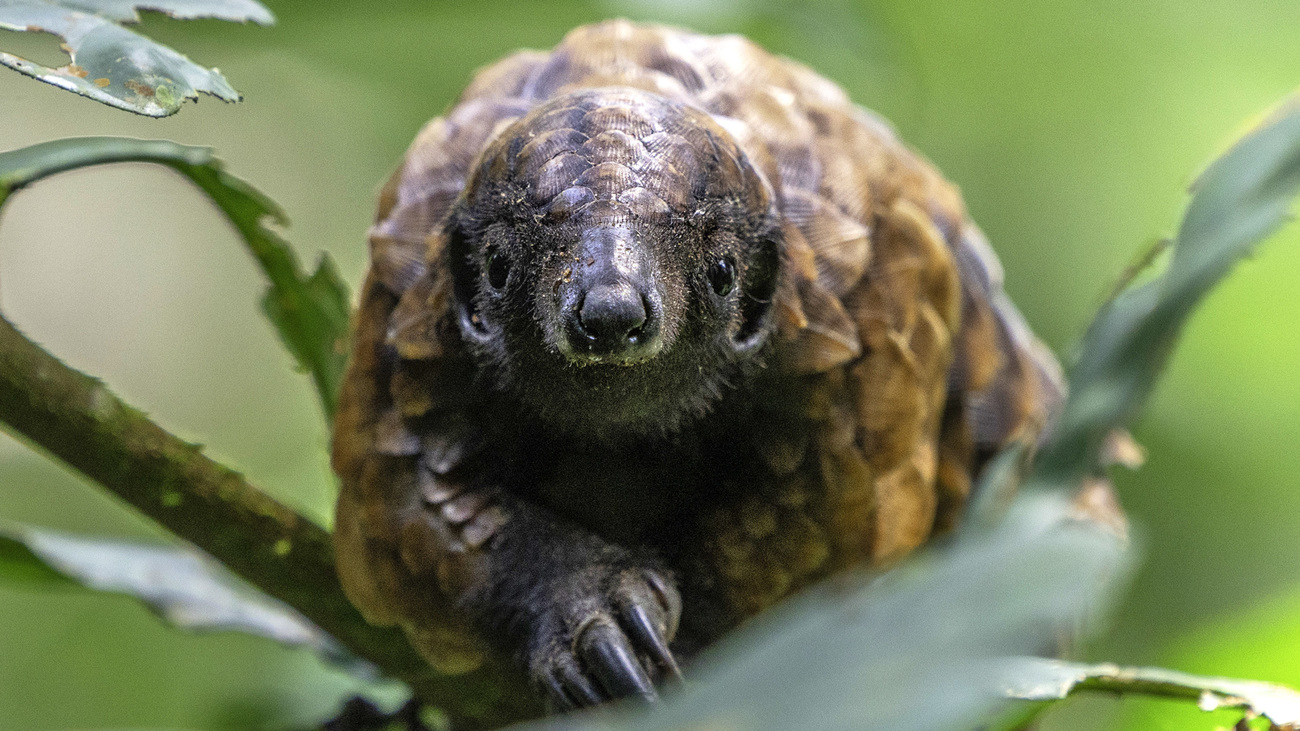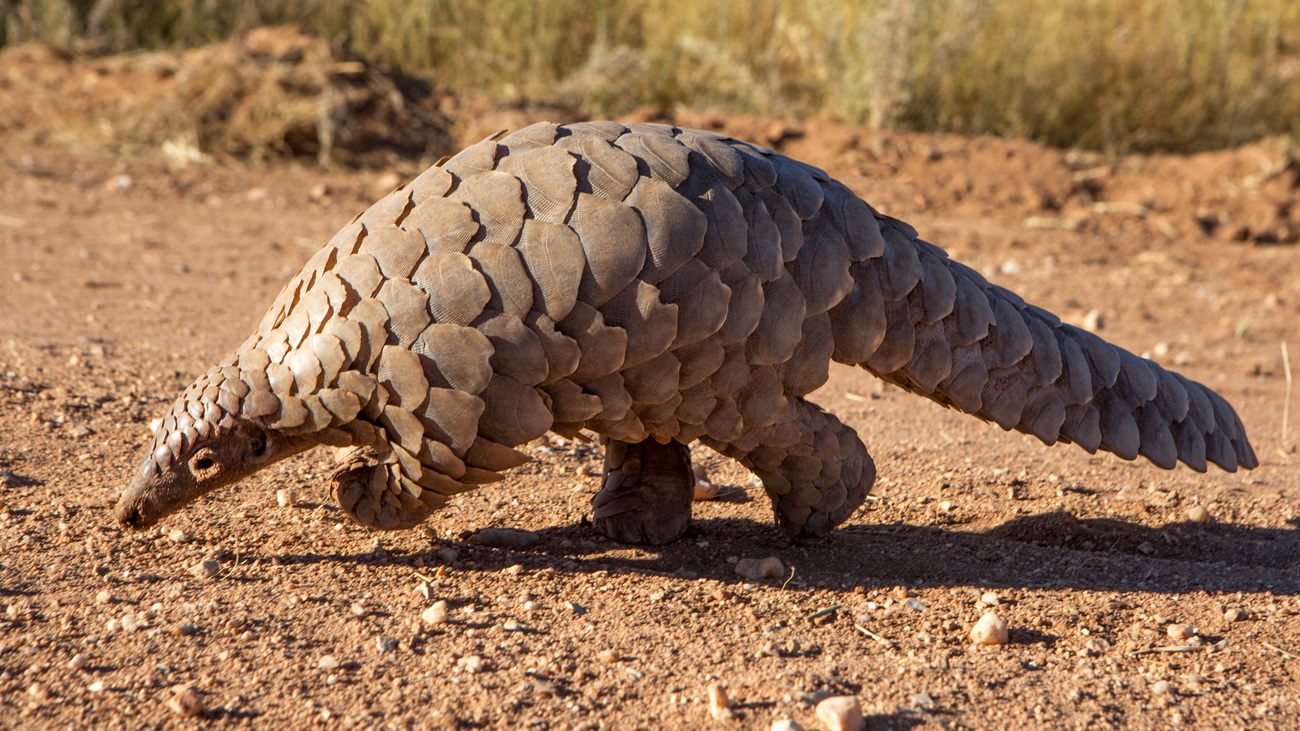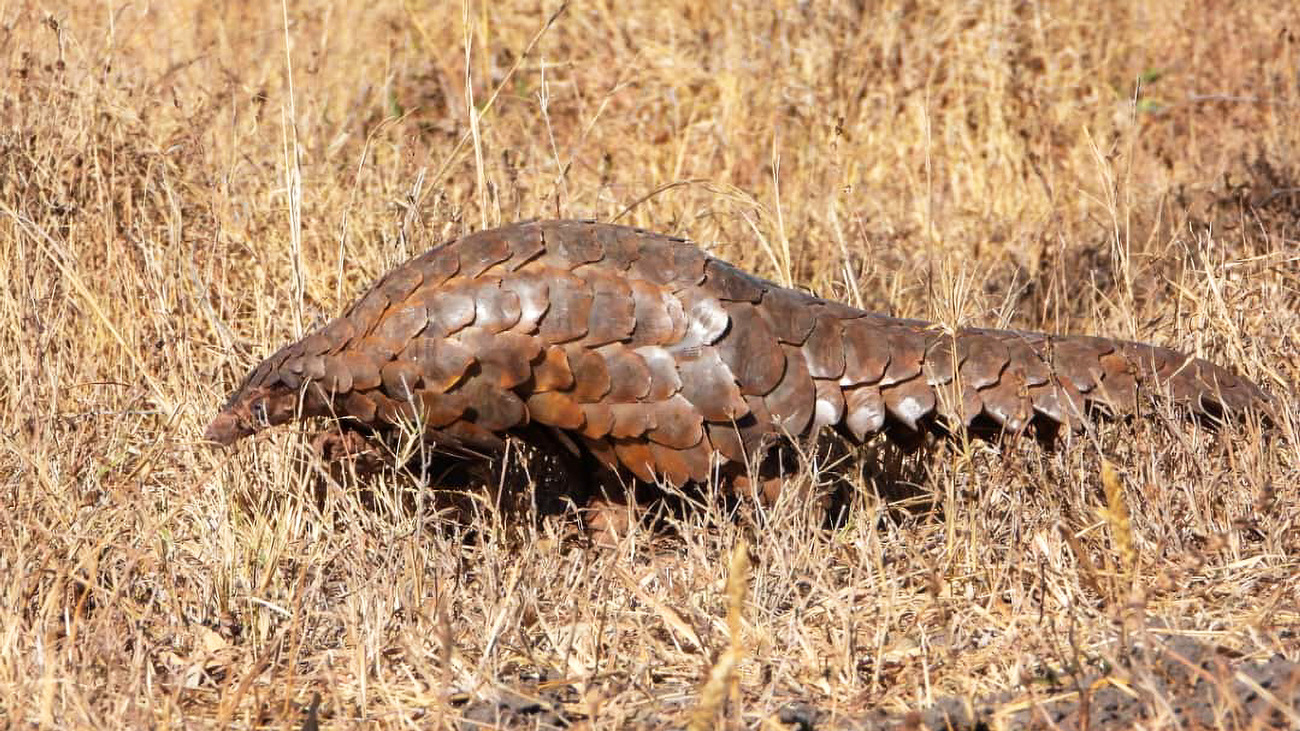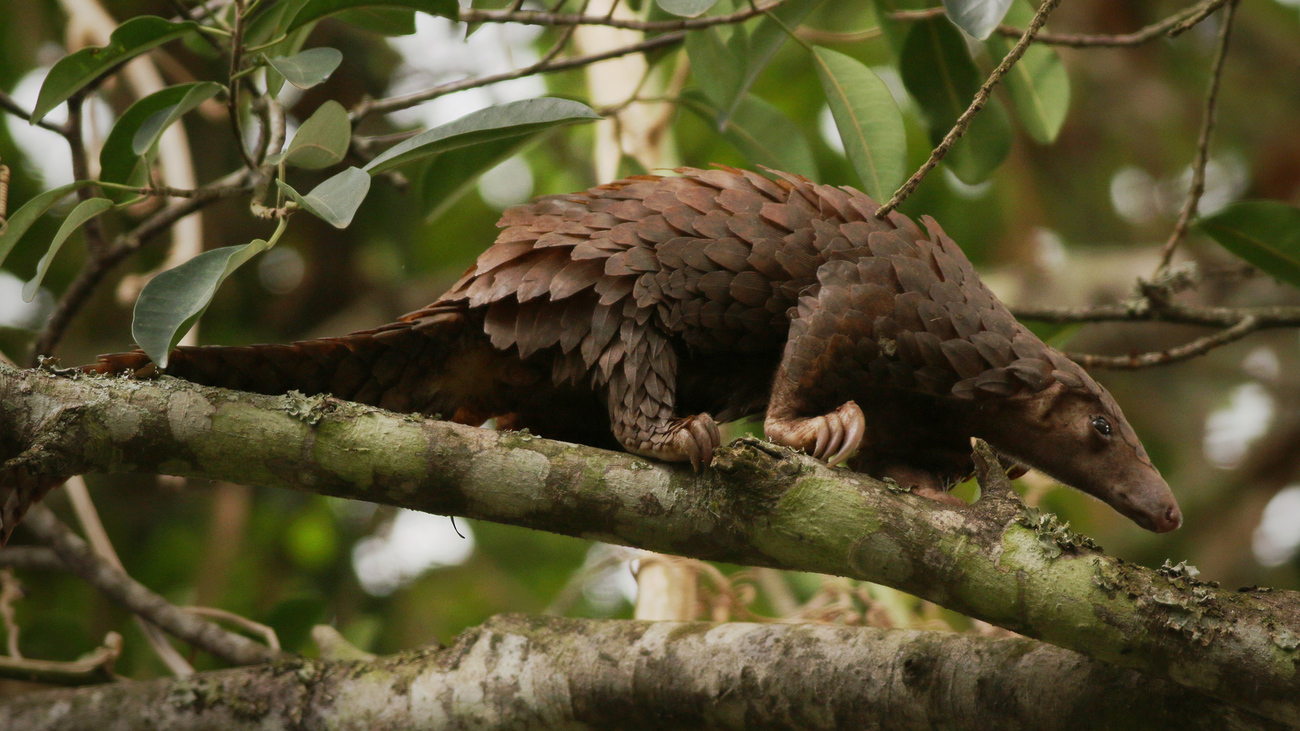Disrupting Wildlife Cybercrime – Global
Wildlife crime is a matter of supply and demandDisrupting wildlife trafficking in East Africa to save pangolins
Disrupting wildlife trafficking in East Africa to save pangolins
You may have never heard of one of the world's most elusive and trafficked mammals, the pangolin.
A nocturnal, termite-eating mammal that looks like a cross between a reptile and an anteater with sharp claws, a scaly coat, sticky saliva, and super long tongue, the pangolin is a shy animal and the world’s only scaly mammal. When threatened, pangolins curl up into tight balls, their overlapping scales serving as tough armour.

Pangolins are killed primarily for their meat and scales, which are believed to have medicinal properties that neutralise evil spirits and cure ailments such as cancer and rheumatism. There’s no scientific evidence to prove these ideas. In some cultures, pangolin meat is considered a delicacy and consumed as a sign of affluence. A spike in consumer demand for these products in China and Vietnam has led to the mass killing and large-scale illegal trafficking of pangolins out of their natural habitats, decimating wild populations and pushing these rare mammals closer to extinction. The ground and giant pangolin species found in East Africa are often targeted by poachers due to their large size, because they fetch a higher price.
Four of the eight pangolin species are found in Africa. These include the giant pangolin, black-bellied pangolin, white-bellied pangolin, and ground pangolin. The four other species are found in Asia: the Indian pangolin, Philippine pangolin, Sunda pangolin and Chinese pangolin. The future appears gloomy for these unique animals, as three species are classified as endangered on the International Union for Conservation of Nature (IUCN) Red List of Threatened Species, and another three are listed as critically endangered. In 2016, the party to the Convention on International Trade in Endangered Species (CITES) almost unanimously voted to ban the commercial trade in pangolins. Indonesia was the only nation opposed to the decision. However, despite the almost unanimous trade ban by the multilateral treaty, illegal trade in live pangolins and their scales continues unabated.

In October 2023, Nigerian authorities destroyed seized pangolin scales valued at a staggering USD $1.4 million in Abuja. Pangolins, except for the white-bellied pangolin, are almost extinct in Nigeria, and these types of interceptions show how Nigeria is used as a transit route by trafficking syndicates. While this was a powerful way to send a message that the West African nation remains fully committed to combatting illegal wildlife trade, more needs to be done to stop the trade at its source—demand for wildlife products.
Guardians of forests
Pangolins are frontline protectors of forested habitats because they shield trees from termite destruction, helping maintain healthy ecosystems. One mature pangolin can eat up to 209,230 termites in a single meal, meaning it can protect over 40 acres of forested lands from termite destruction. Pangolins also love to excavate burrows, which helps with soil aeration—this is why they’re often called ecosystem gardeners. Without a stable population of pangolins, important carbon sinks, such as the Congo Basin rainforest, will be in grave danger. What does that mean? We’re essentially putting in limbo the provision of vital ecosystem services such as pollination, clean air, and water.
Ending the illegal trade and trafficking of pangolin scales won’t just take cooperation between conservationists and wildlife management authorities. It calls for a united force that at times involves transboundary partnerships and information sharing between stakeholders in government, the private sector, and technology vendors.

Training law enforcement
IFAW works closely with partners and wildlife authorities to protect pangolins from the threat of illegal wildlife trafficking in East Africa. Through a series of specialised workshops called DISRUPT (Detecting Illegal Species through Prevention Training), IFAW is driving action to combat the illegal trafficking of pangolins through enhanced cross-border collaboration between law enforcement agencies in Kenya, Uganda, Ethiopia, DRC, and Tanzania. The training is aimed at upskilling and equipping law enforcement authorities with the technical expertise to curb pangolin trafficking—with a focus on the four African species. This facilitates information sharing between community stakeholders, wildlife crime monitors, and prosecutorial agencies to halt wildlife crime across borders.
By working with community informers and state mandated authorities such as the Kenya Wildlife Service, Tanzania Wildlife Authority and Tanzania National Parks, and Uganda Wildlife Authority, IFAW has empowered public sector stakeholders to facilitate stringent apprehension, prosecution, and conviction of wildlife crime cases. When judicial officers, magistrates, and prosecutors understand the value of wildlife, they are more likely to appreciate the gravity of what it means to lose a critically endangered species and do everything possible to protect nature.

Like any other wildlife species, habitat loss from changing land use plans further threatens these shy mammals. In Amboseli’s Illainagarunyoni Conservancy, home to rare species like pangolins, IFAW, through its visionary Room to Roam initiative, is working with the local Maasai community to secure critical wildlife habitats and ensure elephants and other wildlife species can move freely through connected landscapes. When we work with the local Maasai community in Illaingarunyoni to adopt conservation as a land use plan, it’s not just about elephants and giraffes getting more space to roam. Less noticed animals such as pangolins also get a new lease on life. Illaingarunyoni Conservancy will give these unique creatures more space to get food and live without getting too close to urban settlements.
Related content
Our work can’t get done without you. Please give what you can to help animals thrive.